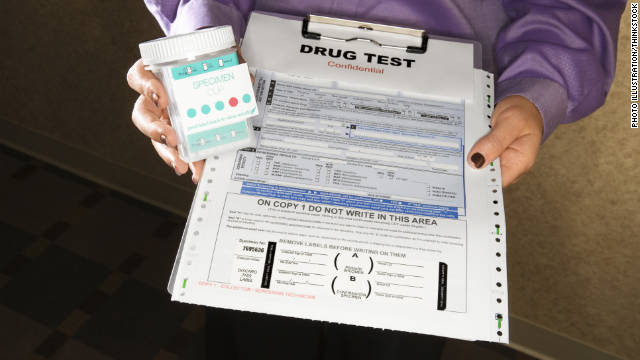
A federal judge has temporarily blocked a controversial Florida law requiring all welfare applicants to be drug-tested.
U.S. District Court Judge Mary Scriven issued a temporary injunction Monday evening against enforcement of the law's "suspicionless drug testing" of adults seeking federal welfare.
The law went into effect July 1, but a single father and the American Civil Liberties Union contend in a lawsuit that the new law is unconstitutional and violates Fourth Amendment protection against unreasonable search and seizure.
"Perhaps no greater public interest exists than protecting a citizen's rights under the Constitution," the judge wrote, quoting a 1997 Hawaii case.
Under the law, the Florida Department of Children and Family Services requires the drug tests of adults applying to the federal Temporary Assistance for Needy Families program. The aid recipients are responsible for the cost of the screening, which they recoup in their assistance if they qualify.
Those who fail the required drug testing may designate another individual to receive the benefits on behalf of their children, but they do not receive a refund for cost of the test.
Florida Gov. Rick Scott has championed the law, saying it provides "personal accountability." He added it was "unfair for Florida taxpayers to subsidize drug addiction."
Florida is not the first state to pass such legislation. Michigan passed a similar law that was found to be unconstitutional by the 6th U.S. Circuit Court of Appeals in 2003 for violating the Fourth Amendment.
The ACLU filed a class-action suit on behalf of an Orlando single father who opposed the drug test.
Luis Lebron, an unemployed adult college student who cares for a 4-year-old son and disabled mother, was denied temporary cash assistance because he refused to be drug tested. The Navy veteran, an undergraduate at the University of Central Florida, contends the law violates his rights and adds he has never used illegal drugs.
The judge, sitting in Orlando, agreed to halt the drug testing until the ACLU lawsuit is settled.
But the judge denied the plaintiff's request to make the matter a class-action case.
"I'm delighted for our client and delighted to have confirmation that all of us remain protected from unreasonable, suspicionless government searches and seizures," said Florida ACLU attorney Maria Kayanan in a written statement.
The GOP-controlled legislature passed the bill, and Scott signed it into law in May 2011.
"The governor obviously disagrees with the decision and he will evaluate his options regarding when to appeal," said his deputy press secretary Jackie Schutz.
Since campaigning for governor, Scott has said that the drug-testing of welfare recipients "will help to prevent misuse of Florida tax dollars" and make sure the money goes to the children.
"Research shows higher drug use among individuals receiving government assistance, and drug abuse also forces children into welfare assistance," Scott said while signing the bill into law.
The ACLU said the state's own study found that of the 2,000 people who took the state drug test, only a small percentage tested positive.
"It shows that a little bit more than 2% of the welfare applicants tested positive for drugs where it's about 8½% in the general public," said Howard Simon, executive director of the ACLU of Florida.
Lane Wright, the governor's press secretary, said the study is flawed. "It doesn't take in the deterrent effect," Wright said.
Wright added there's no way to factor how many people avoided taking the test fearing they would test positive for drugs.
After being approved for temporary cash assistance, Luis Lebron was shocked by the mandatory drug test. He then contacted the ACLU.
"This is an unconstitutional invasion of privacy, that you can't condition getting some benefit from the government by surrendering your constitutional rights," Simon said.
Attorneys for the state say pre-employment drug testing is commonplace and that the Navy vet himself could have been subjected to random drug testing while in the military.
The governor's office said it is confident the judge ultimately will uphold the constitutionality of the law, contending it's popular among the people of Florida.
But Judge Scriven said in her ruling that based on the evidence, "there is a substantial likelihood" that Florida's law could be found unconstitutional.
Added the ACLU's Simon: "We're the only state in the country that has this (law)."
Source: CNN